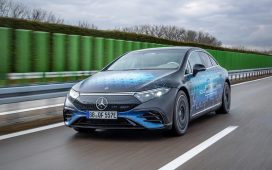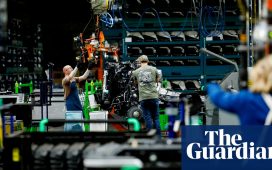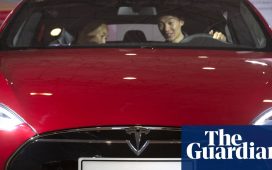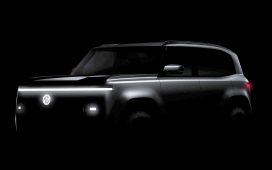Published date: 24 March 2023
The transformation to a greener future for cars will require time and a steadfast policy commitment, but the sustained popularity of flex-fuel vehicles (FFVs) has already put Brazil some way down the road towards sustainability.
As it turns 20, the flex-fuel engine is at the center of a debate that divides the Brazilian automotive industry, as to which solution will drive the country’s transition to a cleaner mobility model.
Some automakers defend a transition model based on the ethanol hybrid as the appropriate solution for most drivers in the medium term, leaving fleet electrification for another moment.
Others claim that Brazil may be seen as a “late mover” on the electric vehicle (EV) market and risks losing strategic advantage if it does not get into gear soon.
For major European automaker Stellantis chief executive Carlos Tavares, the flex-fuel vehicle is the most cost-effective and affordable option for decarbonization in Brazil.
“The electric vehicle makes no sense compared to a car that can run on 100pc ethanol — not to mention that it is much more expensive for the middle class,” Tavares said during a roundtable discussion in February.
Stellantis is the fourth-largest automaker in the world and is the result of a 2021 merger between Fiat Chrysler and Peugeot Citroën.
Tavares believes 100pc ethanol should play a larger role in Brazil, on the belief that there is minimal difference in total carbon emissions between flex-fuel vehicles and electric vehicles, while flex fuel vehicles present a significant cost savings.
Still, Stellantis expects to have the technologies needed to develop hybrid ethanol-electric vehicles in Brazil by the end of 2023, erasing the barrier between electric and flex-fuel cars.
The initiative comes alongside a larger push for sustainability in the country, with President Luiz Inacio Lula da Silva pledging to work towards clean energy alternatives.
Among the EV initiatives, Volkswagen teased the launch of the all-electric model ID.4, expected to arrive in the second half of 2023, to celebrate the company’s 70th anniversary in Brazil.
Government energy research agency EPE is more in line with the ethanol-friendly position that Stellantis advocates, arguing that the country should not jostle for first mover advantage.
“The ample availability of renewable fuels produced domestically, as well as the widespread flex-fuel technology, allows the country to wait for the development of the global industry [of electric cars] before committing to a route,” EPE says, adding that ample ethanol availability obviates the need to develop retail chains to support EVs.
Fast lane for energy sustainability
In fact, nationwide availability of ethanol established back in the late 1970s was a key element in the success of flex-fuel vehicles, which now account for 85pc of all cars on the road in Brazil, and 83pc of all new light vehicle sales in 2022, data from Brazil vehicle association Anfavea says.
The history of ethanol fuel in Brazil dates to 1975, when the Pro-Alcohol strategic policy — a plan launched by the Brazilian military dictatorship to replace petroleum-based fuels with sugarcane-based ethanol following the first oil crisis — was put in place, well before discussions around decarbonization and clean mobility became the norm.
The government offered subsidies to sugarcane growers and forced service stations in every town of at least 1,500 people to install ethanol pumps.
But as decades progressed, oil prices eased and subsidies granted to ethanol producers were eliminated, while automakers stopped producing ethanol-only cars almost entirely.
The industry went through tough steps to eventually arrive at a better situation by early 2003, when ethanol suddenly seemed economically viable again. On 23 March that year, Volkswagen introduced the first flex-fuel vehicle to the Brazilian market, and other companies — including General Motors and Ford — eventually followed suit.
FFVs went on from selling just 48,178 units in 2003, or 3.6pc of total light vehicle demand, to 1.63mn vehicles last year. The domestic car industry also reached a milestone of having delivered 40mn flex-fuel vehicles as of February since 2003, according to Anfavea.
The flex-fuel motor should also attract more attention as a solution to decarbonizing other major emerging economies.
“India and countries in southeast Asia expressed great interest in the flex technology,” Anfavea says. “They are under pressure to decarbonize but are unable to quickly electrify the fleet.”
For Brazil, EPE expects internal combustion engines and flex-fuel motors to dominate vehicle sales for the next decade, with innovations like micro-hybrids and mini-hybrids representing just an incremental portion of total demand.
FFVs will account for almost 89pc of the Brazilian car fleet, according to the agency.











